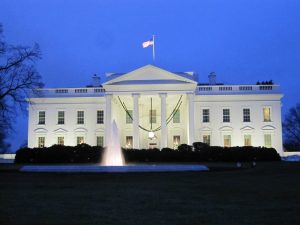Yesterday, the White House published a Presidential Executive Order on a Comprehensive Plan for Reorganizing the Executive Branch directing the Director of the Office of Management and Budget, after a period of review and consultation with the agencies, to propose a plan to streamline the federal government’s executive agencies, both reorganizing governmental functions and eliminating unnecessary agencies. It may take a year to formulate.
Articles Posted in Government Contracts
DOJ’s Great Expectations For Companies’ Compliance Programs
In Great Expectations, DOJ holds anti-corruption compliance programs to a high standard in evaluating their credibility, our colleagues Bill Sullivan, Nancy Fischer and Aaron Hutman discuss the U.S. Department of Justice’s (DOJ) February 8 release of a list of important topics and sample questions that the Criminal Division’s Fraud Section has frequently found relevant in evaluating the adequacy of a corporate compliance program. The new guidance is intended to assist ethics and compliance officers in crafting effective corporate compliance policies and procedures, and signals how DOJ’s new compliance expert, Hui Chen, is expected to assess a company’s compliance program.
POTUS Executive Order “Enforcing the Regulatory Reform Agenda”
Referencing Executive Orders issued by past administrations, on February 24, 2017, President Trump issued a new  Executive Order: “Enforcing the Regulatory Reform Agenda.” The Executive Order establishes new procedures and timelines by which most federal administrative agencies must conduct their regulatory planning and review.
Executive Order: “Enforcing the Regulatory Reform Agenda.” The Executive Order establishes new procedures and timelines by which most federal administrative agencies must conduct their regulatory planning and review.
GAO Clarifies Whether An Agency Is Required To Or May Credit An Offeror For Its Subcontractor’s Past Performance
In its recent Atlantic Systems decision, the Government Accountability Office clarified whether an agency is required or simply has discretion to credit past performance references submitted on behalf of an offeror’s proposed subcontractor. The answer: it depends on the type of procurement. For more information, read our Taking Credit for Subcontractor Past Performance GAO clarifies when an agency may decline to evaluate a proposed subcontractor’s past performance references.
Additional Source: Matter of Atlantic Systems Group, Inc., File B-413901; B-413901.2, Decision (Jan. 9, 2017)
Brexit and the UK Government’s New Contract Approach
In Brexit and Procurement, Pillsbury partner Tim Wright discusses the UK Government’s January 23 publication of a 132-page strategy green paper—or consultation document—entitled Building our Industrial Strategy. The paper sets out the Government’s “buy British” plan aimed at helping UK-based suppliers, supply chains and infrastructure companies when
bidding for public sector contracts. The paper confirms that focusing Government buyers on “social and economic factors” when designing their procurements will “encourage innovative solutions and maximise the positive impact of public procurement on strengthening the [UK’s] economy.”
DCAA’s Practices Exposed, Providing Possible Leverage For Contractors
Yesterday, our colleagues James Gallagher and Glenn Sweatt published their client alert discussing a recent and important decision issued by the Armed Services Board of Contract Appeals (ASBCA) in Lockheed Martin Integrated Systems, Inc., ASBCA Nos. 59508 and 59509. The decision exposes what has been in recent years an all-too-familiar practice by the Defense Contract Audit Agency (DCAA) of questioning the allowability of government contractor costs based on meritless arguments and the Defense Contract Management Agency’s (DCMA) related rubber- stamping of the DCCA’s disallowance of costs without proper exercise of its authority. The alert is titled Warning Shot Fired (Finally) at Improper DCAA Cost Disallowance Basis.
Clarification Provided On Executive Branch Gift Rules
Recently, our colleagues Emily Erlingsson, Kathy Donovan and Anita Mayo posted their client alert discussing the amendments made by the Office of Government Ethics to the executive branch gift rules. These changes included clarifications to existing gift exceptions that are commonly used by corporations and organizations whose employees interact with federal officials. The changes and clarifications seek to strengthen the executive branch gift rules and increase transparency. The alert is titled 2017 Brings Changes to the Federal Executive Branch Gift Rules.
2017 American Water Infrastructure Opportunities
Recently, our colleagues Michael Reese and Andrew Home posted their client alert discussing the Water Infrastructure Improvements for the Nation Act. This legislation creates new obligations as well as new opportunities for infrastructure constructors, owners/operators of public water systems and their lenders. This new legislation and related appropriations may pave the way for President-elect Trump’s proposed significant investment in American water infrastructure. The alert is titled 2016 Water Legislation Reaches New Areas & Sets the Stage for President-Elect Trump
New Statutes Impact Bid Protests of Task Order Awards
Two new statutes—the 2017 National Defense Authorization Act (NDAA) and the GAO Civilian Task and Delivery Order Protest Authority Act of 2016 (Civilian Task Order Act)—greatly impact the ability of government contractors to pursue bid protests of task order awards. The NDAA increases the jurisdictional threshold from $10 million to $25 million to file a bid protest at the Government Accountability Office (GAO) for Department of Defense (DoD) task order awards. The Civilian Task Order Act, signed into law on December 14, 2016, restored the GAO’s jurisdiction over protests involving task order awards valued at over $10 million issued by civilian agencies, which had lapsed on September 30, 2016.
DIUx ~ A viable option for companies to break into the U.S. government market?
Today, our colleague Glenn Sweatt published a client alert discussion the Defense Innovation Unit (Experimental) (DIUx) relaunched in May 2016 and recent developments, including the award of more than $36 million in new contracts in FY 2016, and what is expected in the coming year. The alert is titled High-Tech Government Contracts Program Shows Promise, but Long Term Success Uncertain.
 Gravel2Gavel Construction & Real Estate Law Blog
Gravel2Gavel Construction & Real Estate Law Blog


